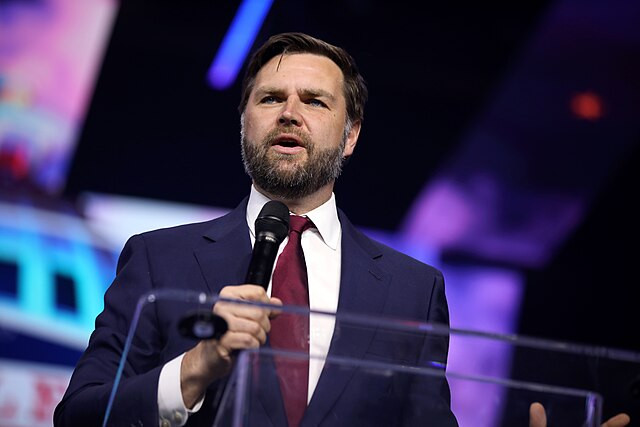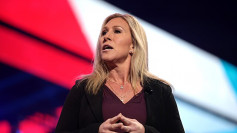Donald Trump Jr. sparked a heated moment during a televised appearance on CNN following the vice presidential debate, when he lashed out against comparisons of his father, Donald Trump, to Adolf Hitler. However, in an ironic twist, Trump Jr. appeared to have forgotten that JD Vance, Trump's running mate in the 2024 election, had made such comparisons himself in the past.
"The media has radicalized the people that are trying to kill my father," Trump Jr. said, referring to two assassination attempts on the former president. "I've had to have that conversation with my five young children twice in the last two months about someone trying to shoot their grandfather." He went on to criticize the media for creating an environment that led to the attempts on his father's life, attributing it to what he called a "fake Russia scenario." While Trump Jr. was vocal about media portrayals, he seemed to ignore his own ally's history on the issue.
JD Vance, currently Trump's vice presidential running mate, once likened Trump to Hitler during private conversations in 2016, questioning if Trump could become "America's Hitler." During Tuesday's debate, Vance addressed these past comments, reiterating that he had been wrong and had since come to support Trump. "I've been open about the fact that I was wrong about Donald Trump," Vance stated during the debate, attributing his change of heart to a reassessment of Trump's record.
CNN's Kaitlan Collins, who was moderating the segment with Trump Jr., reminded him of Vance's past remarks. "But as you know, JD Vance once likened your dad to Hitler as well. He questioned if he was America's Hitler," Collins said. While Trump Jr. shifted the conversation back to blaming the media for fostering a hostile environment, the moment underscored the complex dynamics within the Trump-Vance ticket.
Vance's 2016 remarks resurfaced earlier this year, raising questions about his credibility as a loyal ally to Trump. Moderators at the vice presidential debate, which saw Vance square off against Democratic Governor Tim Walz, pressed the Ohio senator about his previous skepticism regarding Trump. "First of all, I've always been open that I've sometimes disagreed with the former president," Vance acknowledged, adding that his perspective had evolved. He explained that he had initially believed media stories critical of Trump but later realized they were "dishonest fabrications" of his record.
Despite these past controversies, Vance now emphasizes his belief in Trump's policies, particularly around the economy and national security. During the debate, he defended Trump's performance, citing his success in boosting the economy and fulfilling promises to the American people. Vance's change of heart, which he has addressed openly in recent years, remains a focal point in his campaign, particularly as he tries to convince voters of his loyalty to Trump.
For Trump Jr., the focus of his televised interview was largely on the threats facing his father, including two recent attempts on the former president's life. He accused the media of stoking violent extremism by providing a platform for critics who compared Trump to Hitler. "When someone allows people to have a platform to call someone literally Hitler every day for nine years, it creates it," Trump Jr. said, alluding to frequent media and political comparisons made by Democrats over the years.
This moment also highlighted the tension between Trump Jr.'s desire to shield his father from such comparisons and the reality that Vance, one of his father's most prominent supporters, had once shared those very concerns. Vance's path from Trump critic to running mate underscores the sometimes uneasy alliances that have formed within the Republican Party as it coalesces around Trump's candidacy for a second term.
Throughout the debate and the subsequent media coverage, both Vance and Walz exchanged sharp critiques over immigration, national security, and the economy. But it was Vance's prior comments on Trump that added an extra layer of scrutiny to the Republican ticket. Walz, the Democratic vice-presidential nominee, took the opportunity to attack Trump directly, framing him as a destabilizing figure who had undermined U.S. national security during his first term.






